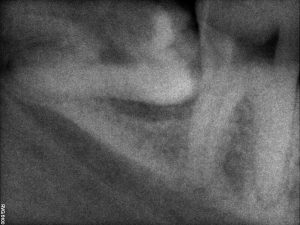“Blood Thinners, Impacted Wisdom Tooth, Roots – In pain, no need to wait! See our Dentist Dr Dhody and be pain free”
Same day appointments avaliable at a convenient time suitable for you.
Complications are when problems occur during or after a procedure. Complications of having a tooth removed include:
- Damage to other teeth. This might happen when your dentist removes your tooth, particularly if the teeth next to the one being removed have a large filling or crown.
- Sensitive teeth. The teeth next to the one that’s removed may feel sensitive and this may last several weeks.
- Poor healing. If the blood doesn’t clot in your tooth socket, it won’t heal properly. This is called dry socket and can be very painful. You’re more likely to develop dry socket if you smoke or take oral contraceptives. If this happens see us straight away. We’ll put a dressing in the socket and prescribe you some antibiotics.
- A nerve injury. You might get a tingling or pins and needles or a numb feeling in your gum near the tooth socket. This may be caused if your nerves are bruised in the procedure, but it won’t usually last long.
Tooth “impaction” involves the situation where a tooth has not been able to come into its normal position in the mouth. And as a result, it still lies buried by gum tissue and possibly bone tissue too. The type of tooth that’s most likely to be impacted is the 3rd molar (wisdom tooth).
For example:
One of our cases from our patient’s who had an extraction.
INR – last blood test to know how soon will your blood clot.
Blood thinners such as Warfarin or Clopidogrel are used for a number of medical conditions as an anti-coagulant (inhibiting blood from clotting). They’re commonly part of a stroke or heart attack prevention strategy in patients with cardiovascular disease, or those with tendencies for thrombosis (blood clot formation within blood vessels) or pulmonary embolisms (blood clots within the lungs). They’re also used with patients with artificial heart valves or on a temporary basis with patients who’ve recently undergone knee replacement or similar surgical procedures. This includes low-dose aspirin, a common over-the-counter drug that’s often prescribed as a mild blood thinner.
An issue might arise, however, if an invasive procedure has the potential to cause bleeding, like a tooth extraction or gum surgery. Because the blood doesn’t clot normally it may be difficult to stop the bleeding during such procedures.
Aspirin is a potent blood thinner – if you are taking it tell your doctor before undergoing surgery.
Once removed, a piece of Heamostetic gauze will be used to help absorb any blood and to apply pressure to the empty socket. Overall, this will help a blood clot to form and protect the bone where the tooth has been removed. You will be asked to sit in the waiting room until we make sure you are ok.
In some instances, a stitch or 2 may be given to seal the gum and help with healing and blood loss.
CALL US ON 01922 624900


